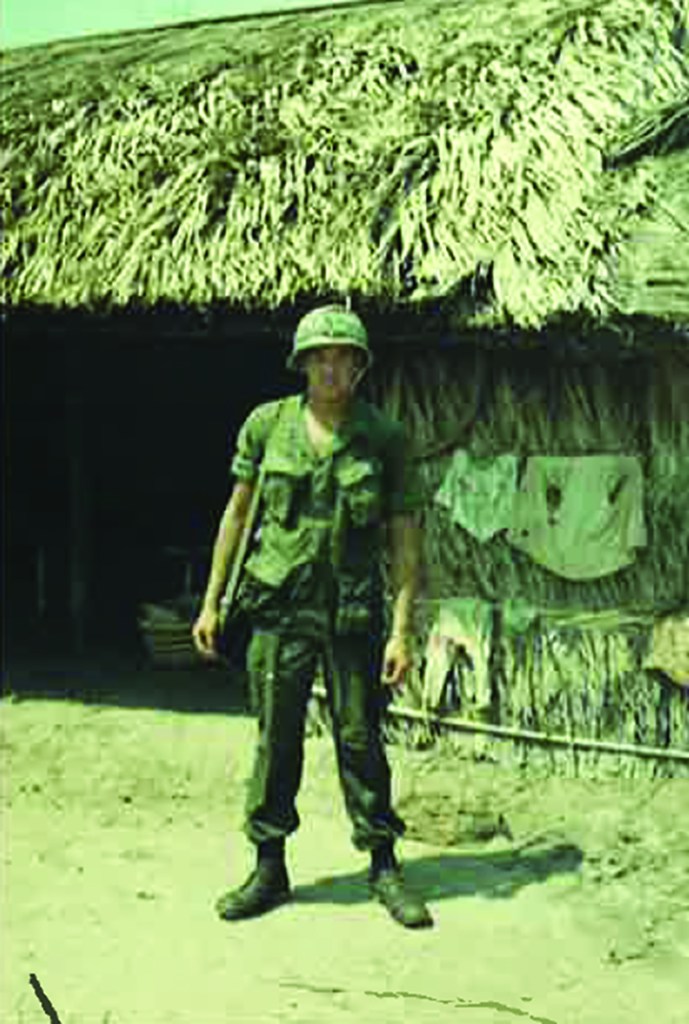Gilman Served In The Rice Paddies In Vietnam

By Jill Fennema –
The deadliest year for the United States during the Vietnam War was 1968. Nearly 17,000 American soldiers lost their lives that year. It was that spring that Dean Gilman was drafted. He was the 19-year-old son of Harold and Alberta Gilman of Woodstock. He was one of nine children.
His older brother John was also drafted and served in Germany. His younger brother Brad ended up in Hawaii. Before he left for basic training, Dean married Evelyn De Groot. The couple had been dating for two years and waeremarried on March 8, 1968 – 55 years ago.
For Dean, the funniest part of basic training was when everyone had to get their haircut at induction. “Everyone had longer hair then. And zing, it was gone,” Dean recalls.
He also remembers there was always a lot of yelling. But he was a farm boy who was in decent shape before basic started, so the physical aspects were not too difficult for him.
The weather in Washington was not memorable to him. He did remember that you could see a mountain from the base and it always had snow on it. It was the weather at his next stop that was much more memorable.
After eight weeks of basic training, Dean was sent to Ft. McClellan in Alabama for his advanced infantry training (AIT).
“We got down there and it was hot and humid,” Dean said.
His time at Ft. McClellan involved specialized training in artillery, guns, and ammunition.
“You pretty much knew that you were going to end up in Vietnam,” Dean said. “They needed infantry.”
That fall he got his orders to go to Vietnam. He was able to return home for a couple of weeks before his deployment. Evie moved back into her parents’ home while he was gone.

Dean Gilman was stationed in southern Vietnam.

Dean sent this photo to his mother. It was taken in Februrary 1969 in Vietnam.
He flew out of Sioux Falls with stops in Los Angeles, Anchorage, and others before landing in Saigon. He was put into the First Infantry Division there. Most of his work there involved patrolling the rice paddies and villages in southern Vietnam. He remembers that there was always a lot of mud. One of his jobs was to carry the ammo for the M60 machine gun.
Much of the area had been cleared using Agent Orange, so he did not experience the jungle-like conditions that other soldiers had. His unit was usually not far from the base camp, so they typically could return to base each night. But other times they were on night ambush patrol or were set down in other areas with helicopters.
Dean said he felt very fortunate to not be stationed in the north near the DMZ where casualties were much heavier. While he was in Vietnam, no one from his unit was killed.
One of the challenges was knowing who to trust. They often had to “seal up” a village – provide guards all the way around the perimeter of a village to keep people from going in or out. He never knew who in the village was good or who might be waiting to try to kill them.








